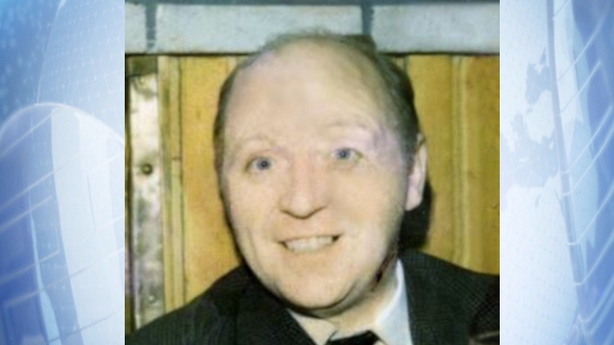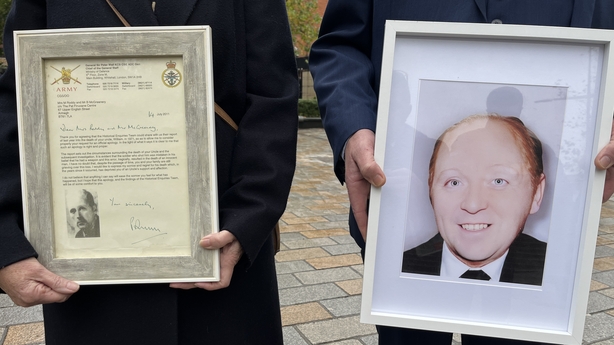The family of a 41-year-old Derry man shot dead by a British soldier in the city in 1971 have been awarded a "significant financial settlement" following a civil action against the British military.
Billy McGreanery was killed by a single round fired by a member of the Grenadier Guards from an army observation post in the early hours of 15 September 1971.
The family cannot disclose the amount they received due to a confidentiality clause.
The British Army and the UK government both apologised to the family some years ago.
Mr McGreanery's nephew Billy, welcomed the settlement:
"The Ministry of Defence have made a financial retribution for the death, pain, anguish and sorrow they have inflected on our family.
"I liken this process to a three-course meal that we fought very hard for and earned.
"The starter was the apologies for the wrongful killing of Billy, and today is the dessert, financial retribution.
"But they skipped the 'Main Course' - justice, which we have hungered for 53 years, and for which we can only hope."
Mr McGreanery, a shop manager, and some friends had been walking through Creggan at the time of the shooting.

The Derry man was hit in the chest and died in hospital.
A report by the Historical Enquiries Team (HET) - a body set up in 2005 to reinvestigate unsolved Troubles killings - found that he had no paramilitary links and contrary to army claims at the time, had been unarmed.
In a statement, Mr McGreanery's relatives said the killing had been very hard on the entire family.
"The fact that they attacked his good name, his reputation, by publicly claiming he was a gunman was like they had killed him twice. They took his life and then they destroyed his name."
The shooting of Mr McGreanery happened at a violent time in the city; two soldiers had been shot in the preceding hours, one died of his injuries.
However, the area around the observation post was quiet at the time Mr McGreanery was fired on.
The RUC carried out an investigation but did not interview the soldier, who was given the cipher Soldier A.
That was left to military police as was the practice of the time in fatal shootings involving soldiers.
In November 1971, a RUC chief superintendent said having examined the circumstances he could not find that Soldier A's actions had been justifiable and he recommended he be charged with Mr McGreanery's murder.
It did not happen.
In April 2024, prosecutors took the decision not to prosecute Soldier A in relation to Mr McGreanery's death.

The family have asked for a review of this decision. Mr McGreanery's nephew said he hoped the review might still mean a prosecution which the family sought to "satisfy our need for the justice we rightly deserve".
The Attorney General for Northern Ireland also directed a fresh inquest. The direction came just 24 hours before the 1 May deadline imposed by the Legacy Act that halted all legacy inquests and other criminal and civil actions.
Soldier A was interviewed as a witness by the HET.
The soldier rejected any suggestion he had shot Mr McGreanery in revenge for the earlier murder of a soldier and maintained it had been a spur of the moment response to a perceived threat.
He told the HET he accepted he had made a mistake that night, but it had been an honest one.
In 2011 the family received an private apology from the then Chief of the General Staff at the British Ministry of Defence.
Mr McGreanery's relatives were in the House of Commons in 2013 to hear the then Armed Forces Minister apologise to them publicly.
Some legacy cases which beat the May guillotine in the UK's controversial Legacy Act are still making their way through the Northern Ireland courts.
Northern Ireland Secretary Hilary Benn has said he will repeal and replace the legislation that was inherited from the previous Conservative government.
Mr Benn has promised to reinstate Troubles inquests and civil actions, which were all ended under the act, but he has yet to bring forward amending legislation.
Victims' groups are also angry at his insistence that a new investigatory body, the Independent Commission for Reconciliation and Information Recovery, can continue to have a role.
Campaigners say families have no faith in it and it should be done away with too.
We need your consent to load this rte-player contentWe use rte-player to manage extra content that can set cookies on your device and collect data about your activity. Please review their details and accept them to load the content.Manage Preferences







